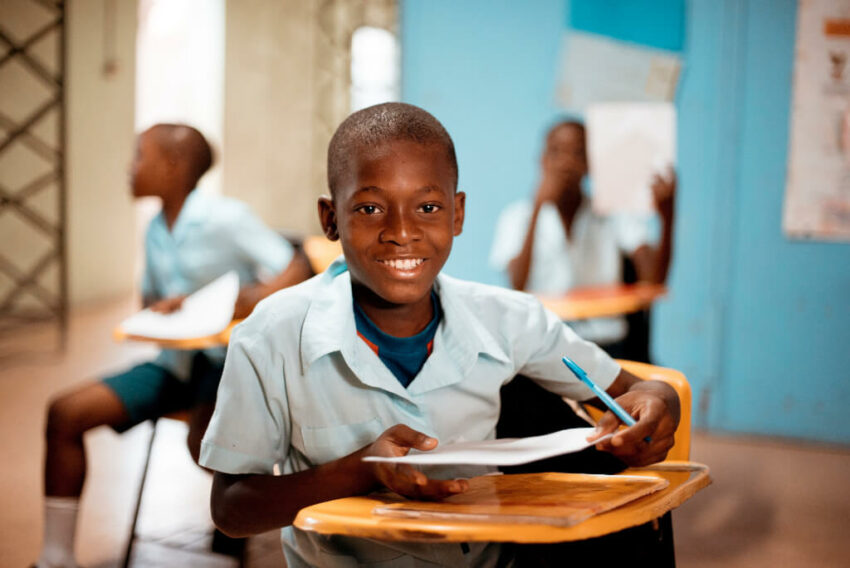Slot machines are consistently ranked among the most popular casino games, whether played in a…
Counselling Has Many Positive Outcomes for Students
- by Mamparra

Emotional stress is a common problem for students all over the world. Modern students encounter several stress-inducing challenges, including increased academic competition, demands to earn higher grades, difficulties in connecting with others, and inadequate career guidance. The already high levels of stress experienced by students can be made much worse by the fact that life has a peculiar way of destroying our best-laid plans. When used together, counselling and therapy can be quite helpful in guiding kids through difficult situations.
By boosting confidence and optimism, counselling has a direct role in helping students succeed. Students receive assistance in both identifying the causes of their difficulties and developing strategies for addressing those causes through behavioural and cognitive adjustments with the guidance of a trained counsellor.
There has been a rise in the number of people seeking professional mental health care and training, therefore educational counselling has become more vital. Exam stress management, allocating sleep time, and independent living are only some of the study-related challenges learners can learn to overcome.
Improved School Performance

Counsellors meet with each student individually to address their unique needs, as well as facilitate group conversations and activities that encourage greater candour and thus, improved academic performance. They learn about pupils’ perspectives in several ways. By doing so, they foster an atmosphere where students feel comfortable expressing their ideas openly. Engage children in a variety of activities, such as storytelling and self-esteem-boosting exercises, to boost their spirits. The students learn goal-setting techniques, as well as methods for tracking their progress toward those goals. There are also workshops on stress reduction and coping techniques.
Students are provided with appropriate direction on how to handle psychological issues that can disrupt their academic performance. It is hoped that the students would gain the ability to think critically and creatively to better handle the challenges of everyday life by the end of these sessions.
Improved Capacity to Make Sound Decisions
In the business world, you can’t base your choices on fleeting feelings; instead, you need the ability to make calculated choices that will yield positive results. A competent counsellor is aware of the importance of developing sound judgment in one’s private as well as professional life. When learning to make important decisions, a skilled counsellor can provide the kid with the confidence and support they need to make the right choices.
More Effective Self-Control
Students may lack the ability to recognise and control their feelings before beginning treatment. A person’s emotional IQ can improve with therapy. Together with their therapists, students can learn to recognise their emotions and develop strategies for dealing with difficult situations. When pupils have this kind of insight into themselves, they are better able to control their feelings.
More Solid Bonds

Students who have gone through therapy report being able to build deeper ties with one another. Some of this can be attributed to their improved ability to express themselves. The therapeutic process also provides an opportunity for kids to practise conflict resolution skills and develop more positive relationships and boundaries. Students can use this as a tool to learn to recognise and appreciate the positive qualities in others. Students who have participated in therapy report improved ability to work together and communicate with others in a variety of contexts, including those with peers, family members, and teachers.
The counsellor’s job also includes helping the student get ready for college and pointing him or her in the right direction for a future career. To help each student reach his or her full potential, they employ a variety of strategies. They put together training programmes that help students make connections between what they’re learning and their professional goals. Counsellors assist students in developing and maintaining positive behavioural patterns. The right kind of direction enables pupils to reach their objectives and take control of their lives. They also learn to get along with their neighbours and find joy in communal life.

To learn everything about the filmmaking process and the entertainment business, attending film school can…

Back in 2018, I was one of the vast number of individuals who went to…
Handling a Wide Range of Challenges
Students are given guidance on how to deal with the various challenges they confront while enrolled in school. When it comes to social interactions, such as how to appropriately speak to others or build friendships, they may not know what to do. With this guidance, they’ll be better able to assess how they should act in various circumstances.
How to Cope with a Life-Changing Event
Have you ever given any attention to the most trying times in a child’s life? The years between 14 and 19 mark the onset of young adulthood. The educational environment, second only to the effect of the family, has a profound impact on the young person’s development. There is a special responsibility on the part of both the family and the school to help the adolescent sort through his feelings and develop into a whole, happy person. After consulting with the parents, a skilled counsellor gets to know the client well and guides him or her toward making the most appropriate selections.
Discourse on the Issues at Hand
Abuse of any kind, including alcohol, drugs, emotions, and so on, can be discussed freely. Students learn how to react and behave in any given situation through the guidance and counselling provided by teachers and counsellors, which in turn improves their character.
A Decrease in Disciplinary Issues

Children’s and teenagers’ anger is often a sign of underlying mental health issues. Angry outbursts and disruptive classroom behaviour are often a plea for assistance from troubled adolescents. If the pupils in question receive the help they require, the resulting behavioural problems should diminish. Students who engage in therapy can benefit not only from addressing underlying mental health issues but also from the opportunity to develop skills in self-management, interpersonal skills, and communication that will make them easier to manage in the classroom and less likely to present as behavioural problems.
Counselling also has a wide range of additional positive effects on students’ lives. India’s rates among children aged 15 to 29 are among the highest in the world, making it imperative that all schools offer some form of counselling. Peer pressure, the dread of failure on a test, despair, joblessness, and any other reason is among the primary causes. With everything going on in the world today, mental health issues are more prevalent than ever, and students need constant assistance as they work through these issues.
Teachers who are sensitive to their plight and encourage students to seek assistance are crucial to their success. Student counselling can help kids feel better overall, which can have a positive impact on their performance in the classroom and beyond. If you’re interested in finding out how to recognise and help kids who are struggling with their psychological well-being, visit Changes Rehab in JHB to learn more about adolecent programs.
Emotional stress is a common problem for students all over the world. Modern students encounter several stress-inducing challenges, including increased academic competition, demands to earn higher grades, difficulties in connecting with others, and inadequate career guidance. The already high levels of stress experienced by students can be made much worse by the fact that life…
Recent Mamparras
- Zwai Bala – The Musical Pioneer Who Helped Shape South Africa’s Sound
- Is This the Worst Own Goal Ever? Watch and Decide
- Mamparras Spend R7.7 Billion From 25th to the 31st of December 2024
- Why Do Liberals Think Trump Supporters Are Mamparas?
- Indepth Look at the Online Thrill to Grill Casino Game
- Artist Discovers 2000yo Roman Bust at Texas Goodwill for $34
- Nobuntu (Mamparra-nobs) Mkhize Disrupts FlySafair Flight – Gets Arrested
- Oscar Pistorius Walks Free, But Where is Reeva’s Justice?
- The Accidental Aboriginal’s Legacy
- The Origins of Oktoberfest
- Fascinating Quick Facts

